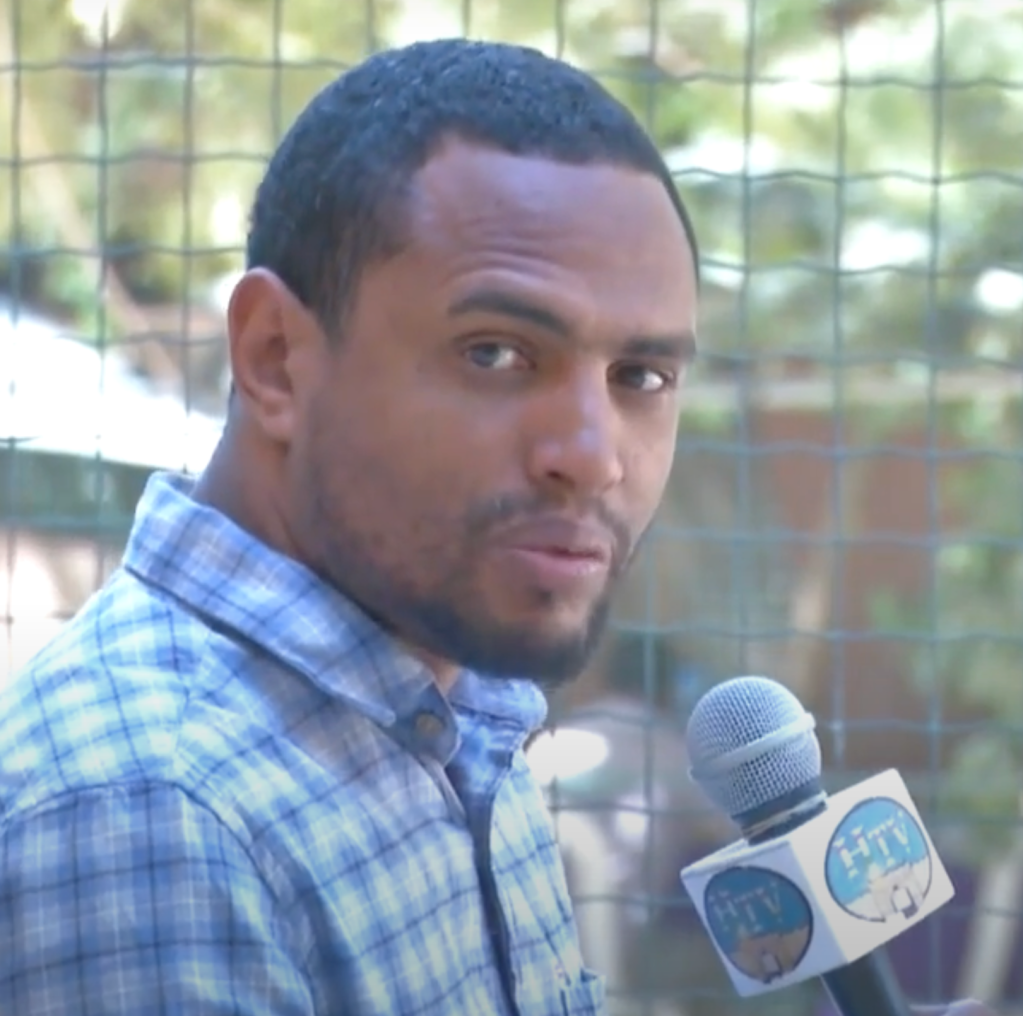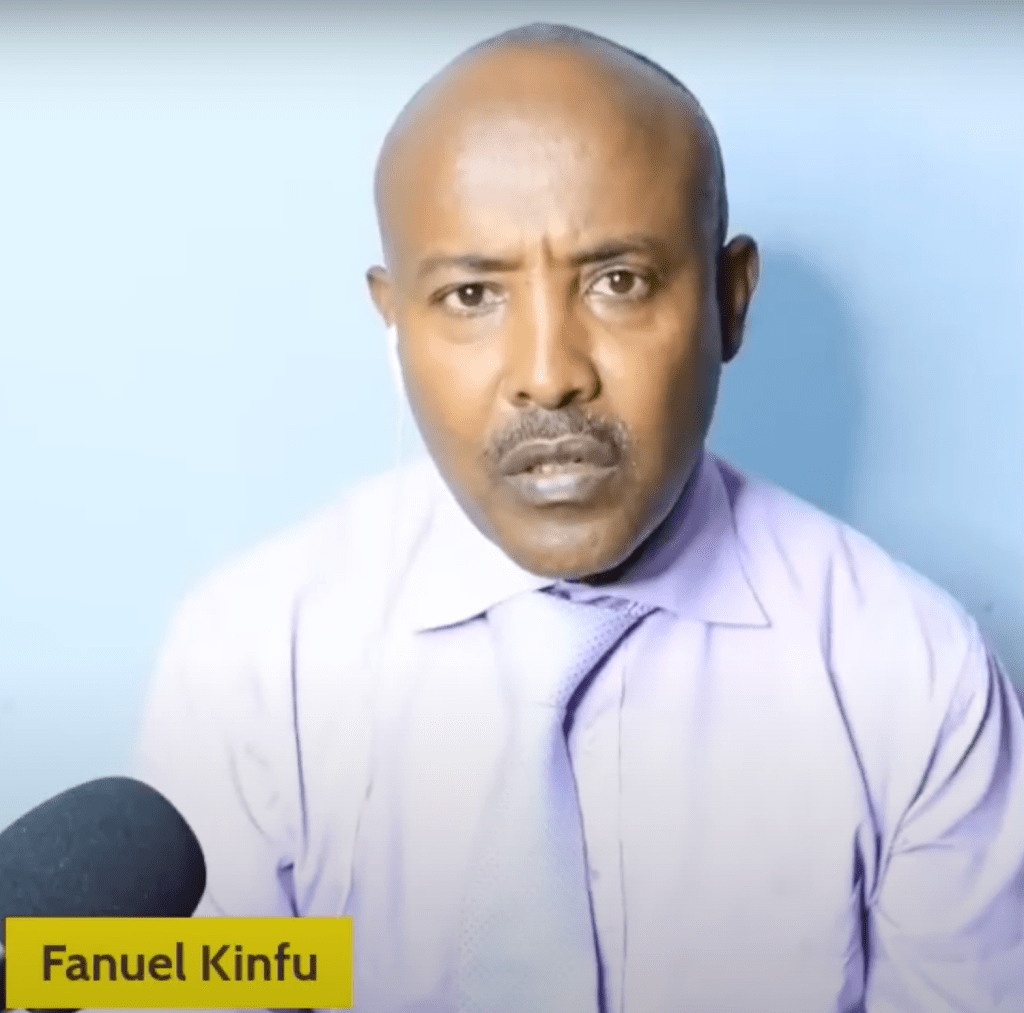Nairobi, May 16, 2025—Journalist Ahmed Awga has been in prison for over three weeks for interviewing a man who said his 16-year-old son Shafi’i Abdikarim Ali died following a police beating — one of at least seven journalists arrested in Ethiopia in the last month as the government tightens the screws on the media.
After his April 23 arrest in eastern Somali Region, Ahmed, the founder of Jigjiga Television Network, appeared in court on incitement charges on April 25, and was remanded in custody pending investigations, the journalist’s relative, who declined to be named, citing fear of retribution, told CPJ.
In the interview, Abdikarim Ali Ahmed demanded justice for his son’s death, saying that an officer kicked the teenage boy’s head, while wearing boots, after which he was hospitalized and died from his injuries. Regional police commander Abdi Ali Siyad told the BBC’s Somali service, “The boy simply died. There is no one to be held accountable.”
Meanwhile, on April 17, parliament passed a widely criticized amendment to the 2021 media law, increasing government control over the regulatory Ethiopian Media Authority (EMA), which is responsible for issuing sanctions against news outlets that violate press ethics, including by revoking their licenses. Press and human rights groups have warned that this shift in power “opens the door to undue influence” from politicians.
“Ethiopia’s hostility to the press has been evident in the frequent arrests of critical journalists, and now the country is well on its way to reversing the gains it made in passing its 2021 media law, once considered progressive,” said CPJ Africa Program Coordinator Muthoki Mumo. “Authorities should release journalists detained for their work and amend or repeal laws that can be used to undermine press freedom.”
More April arrests
In the month of April, in addition to Ahmed’s detention and the brief arrest of three Addis Standard employees as part of a raid on their newsroom, CPJ also confirmed:

- On April 5, police arrested Muhyidin Abdullahi Omar, an editor at the state-owned Harari Mass Media Agency and founder of the YouTube channel Biyyoo Production, in eastern Harari Region, his wife Helen Jemal and a person with knowledge of the case, who declined to be named, citing fear of reprisal, told CPJ.
On April 28, Omar was charged with defamation and disseminating disinformation in connection with two Facebook posts, according to the charge sheet, reviewed by CPJ, in which he alleged mismanagement at a local mosque and corruption at the regional attorney general’s office.
He could face up to three years imprisonment for defamation under a 2016 law and another three years for incitement under an anti-hate speech law, which broadly defines the crime.
Muyhidin had been on administrative leave from Harari Mass Media Agency since 2022, following an arrest over his social media activity, but on April 7, 2025 — two days after his latest arrest — his employer suspended his salary pending a disciplinary meeting, according to Helen and documents reviewed by CPJ.

- On April 10, Fanuel Kinfu, founder of the online outlet Fentale Media, was taken from his home in the capital Addis Ababa. The journalist told CPJ that police questioned him over alleged defamation in relation to commentary videos, published between April 2023 and June 2024. On April 13, he was released on bail of 15,000 birr (US$113).
- On April 23, Abebe Fikir, a reporter with the weekly newspaper The Reporter, was arrested. Abebe told CPJ that he was seeking comment from city officials about a housing dispute but the police accused him of filming without permission — an allegation he denied. On April 25, he was released on bail of 10,000 birr (US$75), without charge.
Increased government power over the press
Ethiopia’s 2021 media law won praise for progressive provisions, including for reclassifying defamation as a civil rather than criminal offence. But the amended law, passed with only one dissenting vote, increases the government’s power over the press. Sections that allowed the public to nominate candidates to the media authority’s board and four slots reserved for media and civil society representatives have been repealed, with board members instead being chosen from “relevant” bodies.
It also removed a ban on board members being members of a political party — a rule that the government had been criticized for breaking in parliament and transferred power to nominate the authority’s director general from the board to the prime minister.
Ethiopia is sub-Saharan Africa’s second worst jailer of journalists, after Eritrea, according to CPJ’s latest annual prison census, with six behind bars on December 1, 2024. One of these, Yeshihasab Abere, was released in January.
In March, seven journalists from the privately owned Ethiopian Broadcasting Service were detained. All have since been freed. Two are awaiting trial on charges of dissemination of hateful disinformation.
CPJ did not receive any responses to queries sent via email and messaging app to federal, Harari and Somali regional police and government spokesperson Legesse Tulu.
This content originally appeared on Committee to Protect Journalists and was authored by CPJ Staff.